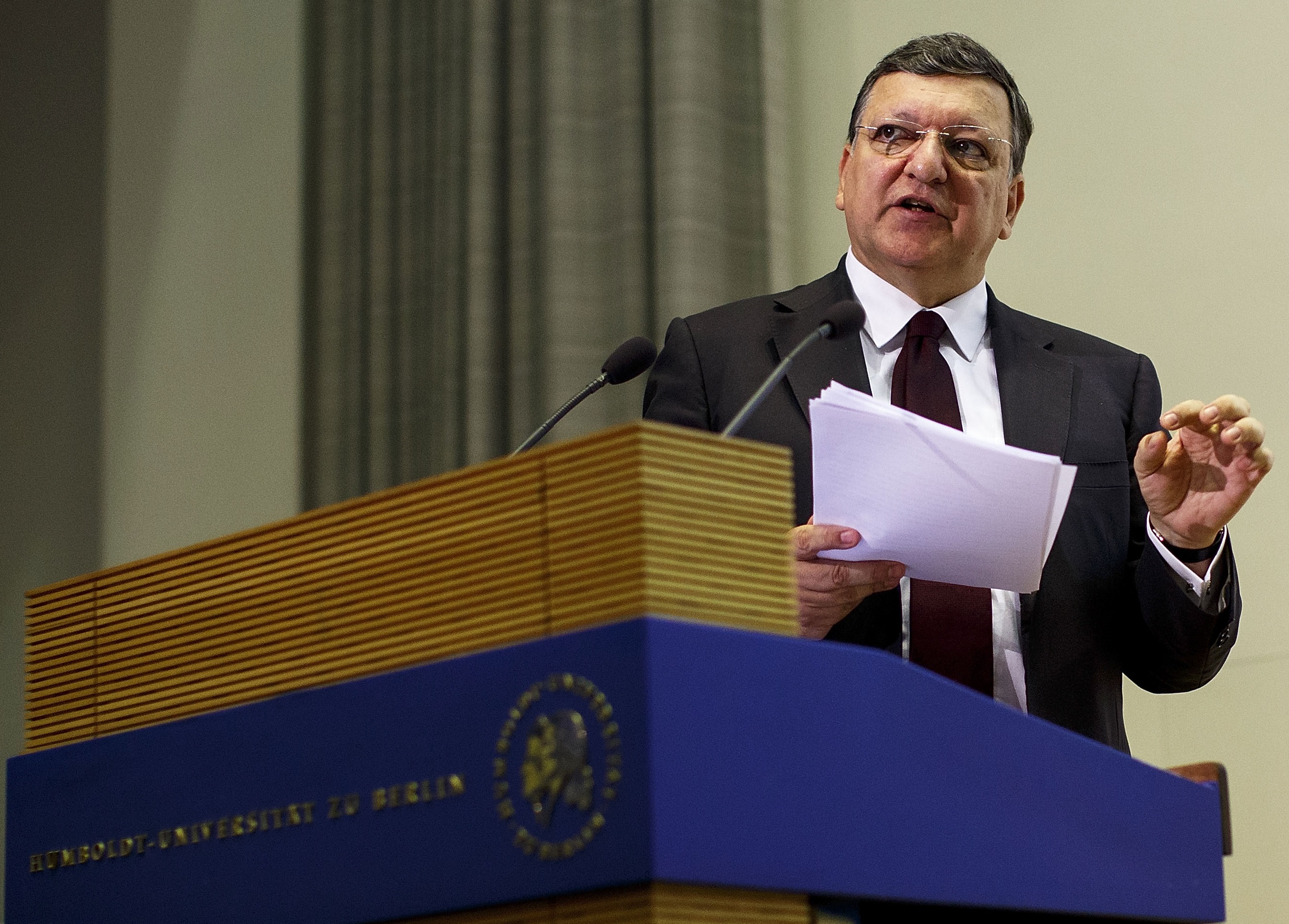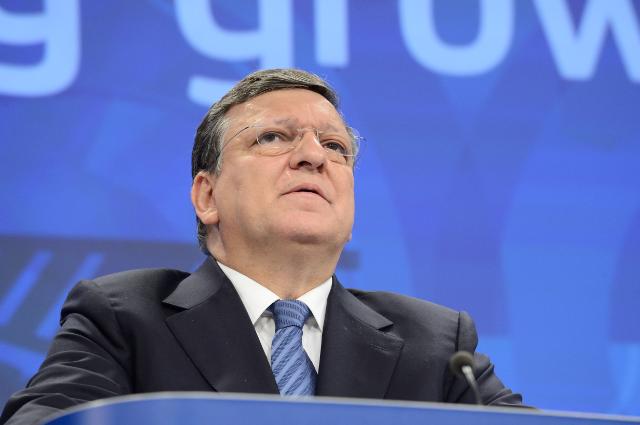Already out of the hype, with all the European newspapers focused on the European Elections and the hypothesis about his successor, the President of the European Commission has delivered what we could easily define as his “political will” during a speech at the Humboldt Universität in Berlin. “Considerations on the present and the future of the European Union” is the (quite ordinary) title of the speech, in which José Manuel Barroso outlined a short summary of his ten years as leader of the European Commission, adding the next steps he thinks would be necessary to fully implement the European integration.
In a remarkably academic speech, with quotes from Konrad Adenauer, Vaclav Havel and Friedrich Hölderlin, that cannot be defined as brilliant though, Barroso talked about “the developments of the last ten years, both positive and negative” which were “definitely extraordinary” and especially about “the challenges ahead of us.” Looking back to the past, the President said, optimistically enough, that they have not allowed “frictions between North and South, between rich and poor, between debtor and creditor countries, between the centre and the periphery,” which “have indeed come up,” to “fragment Europe.” Yet, “we are more than ever in recent history on the road to deepening our Economic and Monetary Union, whilst fully upholding the principles that preserve the integrity of the European Union at large.” Even more optimistically, he added that “the worst hit countries are hitting back remarkably,” Ireland, Spain and Portugal “have been making notable progress,” Portugal “announced it will leave the programme without requesting further assistance from the European Union,” and, in spite of all difficulties, “Greece and Cyprus are also on the right path.”
Looking at the future, Barroso said that “the economic and financial crisis showed, particularly, that the improvement of the governance of the Euro Area was indispensable for the long term sustainability of a single currency.” In phase in which eurosceptics keep on growing, the President said that “Europe needs legitimation by results” that “can only come from a continued emphasis on innovation and reform: reform of our economic structures, of public administrations, of labour markets, of the internal market, of energy and climate policies, and so on.”
In order to reach these results, the European Union needs to change because “there is a governance gap” since Member States on their own “no longer have what it takes to deliver what citizens need,” while in the meantime “the European institutions still lack part of the equipment to do so.” To reach these achievements, we need to aim at a stronger leadership. And “leadership is about taking responsibility, not about following popular or populist trends.” According to Barroso, the new electoral dynamics, with the indication of the candidates for the post of President of the European Commission made by parties (“acknowledging the limits of this specific initiative”) could “reinforce the European nature of these elections. This is the point on which Barroso launched his strongest proposals: “in the medium term, the office of the Vice-President of the Commission responsible for economic and monetary affairs and the euro could be merged with the office of the President of the Eurogroup” and “a more radical innovation, such as merging the office of the President of the European Commission with the office of the President of the European Council.”











![Il commissario per l'Economia, Valdis Dombrovskis, in conferenza stampa a Strasburgo [12 febbraio 2025]](https://www.eunews.it/wp-content/uploads/2025/02/dombro-250212-120x86.png)
